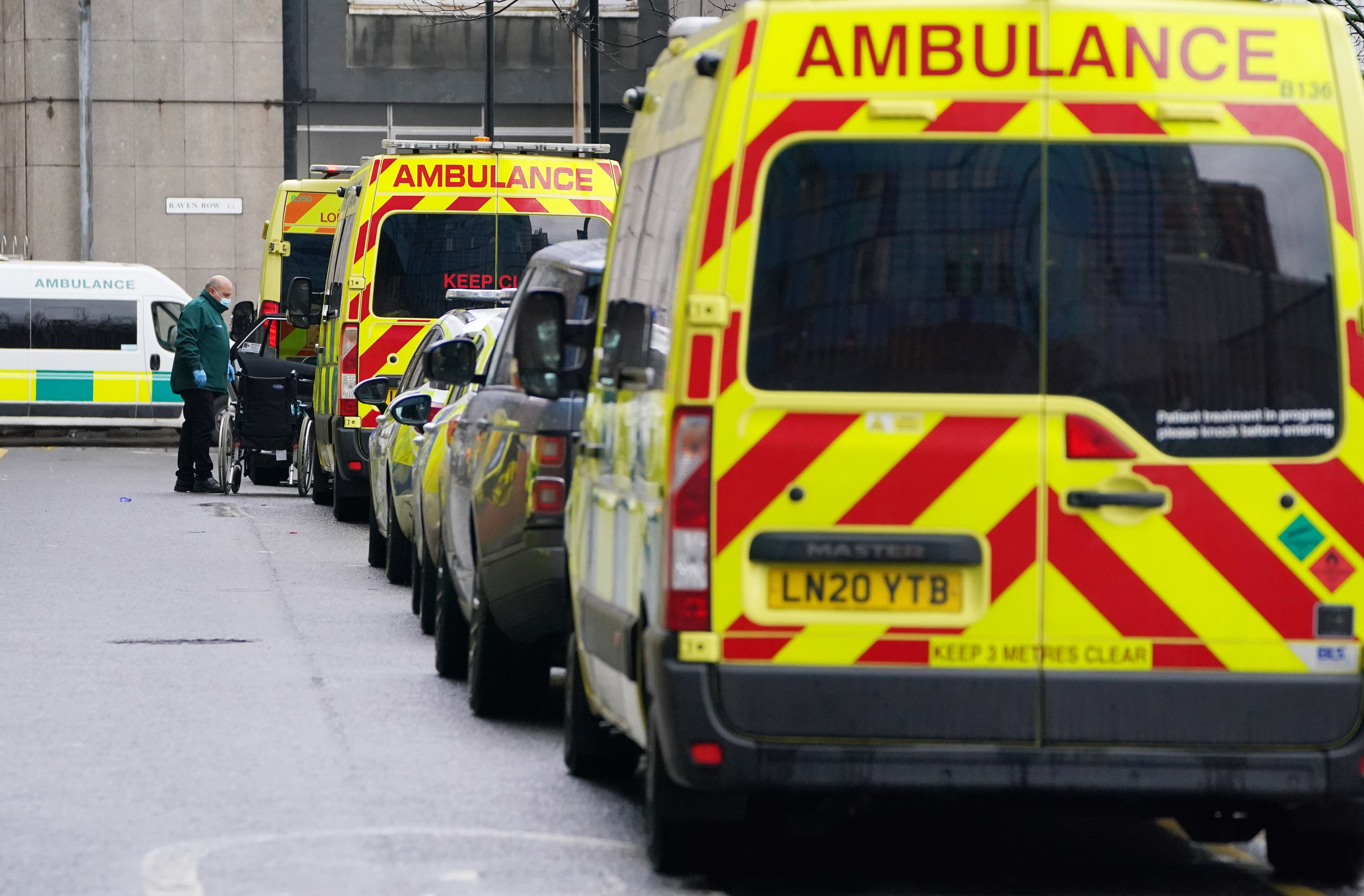NHS has ‘broken’ its promise to the public over the ambulance service
‘At the moment we really are struggling to make any kind of progress in patient safety,’ says president of the Royal College of Emergency Medicine

Your support helps us to tell the story
From reproductive rights to climate change to Big Tech, The Independent is on the ground when the story is developing. Whether it's investigating the financials of Elon Musk's pro-Trump PAC or producing our latest documentary, 'The A Word', which shines a light on the American women fighting for reproductive rights, we know how important it is to parse out the facts from the messaging.
At such a critical moment in US history, we need reporters on the ground. Your donation allows us to keep sending journalists to speak to both sides of the story.
The Independent is trusted by Americans across the entire political spectrum. And unlike many other quality news outlets, we choose not to lock Americans out of our reporting and analysis with paywalls. We believe quality journalism should be available to everyone, paid for by those who can afford it.
Your support makes all the difference.The NHS has broken its “fundamental promise” to the public that life-saving emergency care will be available when they need it, a top NHS doctor has said, as ambulances continue to lose tens of thousands of hours waiting outside hospitals.
Katherine Henderson, the president of the Royal College of Emergency Medicine, said that what she described as the fundamental promise of the NHS to provide an ambulance in a real emergency has been “broken”.
Her comments come as the West Midlands Ambulance Service (WMAS) University NHS Trust predicted it would lose 48,000 ambulance hours waiting outside A&E departments in July. This would make it the worst month on record.
In papers published on Thursday, WMAS said the impact of handover delays means that patients are waiting longer than needed for an emergency response, including patients in category one, which includes those needing immediate life-saving care.
It added: “This means that patients who are immediately time-critical medical emergencies do not get the response they need and may suffer significant harm or death.”
According to the trust, it has reported 262 cases of harm in 2022-23 so far. This is already up from the figure of 152 reported in the whole of 2021-22.
Between April and June this year, the trust recorded 631 incidents of ambulances being delayed outside hospitals for more than 20 hours.
The Independent understands that, on Thursday, WMAS lost 2,000 hours outside A&E departments. Last week, the service lost 2,200 hours in one day.
Following predictions of the service losing 48,000 hours this month, sources say that, on the same trajectory, by mid-August it could expect to lose 60,000 hours, amounting to 30 per cent of its total ambulance hours.
The predictions come after WMAS’s chief nurse, Mark Docherty, predicted that the service would collapse by 17 August in an interview with the Health Service Journal last month.
Last week, The Independent revealed that reports by the Association of Ambulance Chief Executives stated that almost 200,000 patients had come to harm as a result of ambulance handover delays.
The warnings over ambulance service delays come as the NHS continues to face other significant pressures. On Thursday, hospitals in Derby and Derbyshire declared a critical incident as a result of “significant and sustained demand for urgent and emergency care services”.
Speaking to The Independent, a paramedic working in the East of England NHS region said: “Patients are dying waiting for ambulances. People with chest pains wait four hours most of the time, and eventually stop breathing waiting for us. Often when we arrive it’s too late ... category-one response times are awful. Currently, we have ambulances taking 45 minutes in many areas to get there for these calls.”
The region said it had been forced to postpone some non-urgent operations requiring a hospital bed, in order to accommodate patients with the most urgent needs.
Speaking at a patient safety event hosted by charity The King’s Fund on Thursday, Dr Henderson said: “At the moment we really are struggling to make any kind of progress in patient safety. That basic agreement that we have with the public, that if something bad happens and you dial 999, an ambulance will come in a timely way – we’ve broken that promise.
“That fundamental promise we had, where you would go, ‘OK, I might be waiting for my hip replacement, but at least they’ll be there for me in a real emergency’ – that situation is broken.”
Dr Henderson said that fixing this issue is at the core of what the NHS needs to do, describing it as “the biggest single patient-safety, unknown-unknowns problem”.
“Those are patients in the community [whom] we don’t know anything about. We don’t know what’s wrong, barring basic information. We’ve got to get the ambulance delay situation solved ... It is core to providing a ‘decent’ healthcare system,” she said.

Join our commenting forum
Join thought-provoking conversations, follow other Independent readers and see their replies
Comments